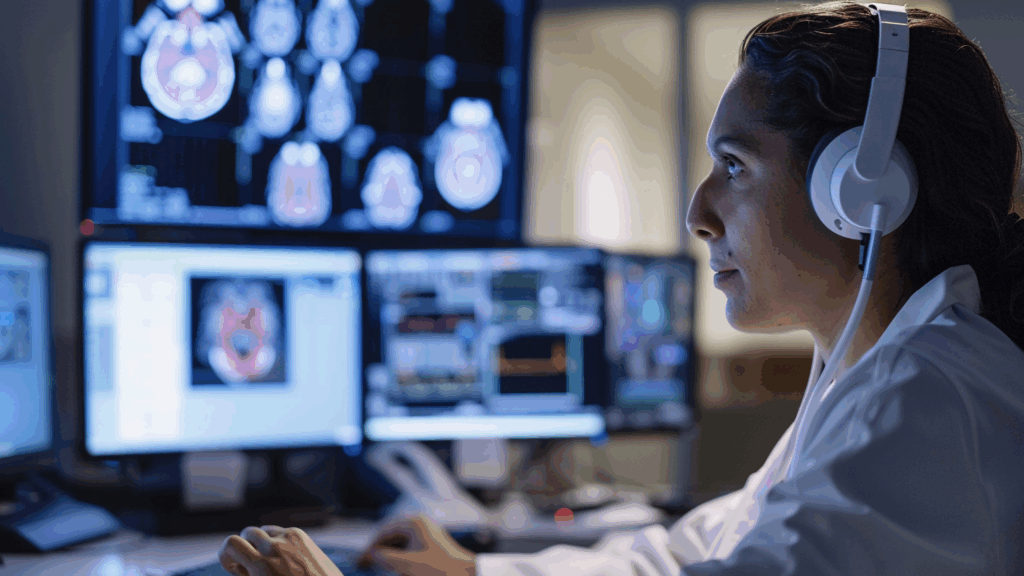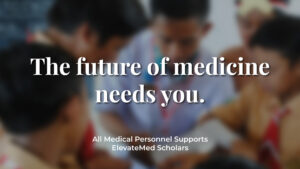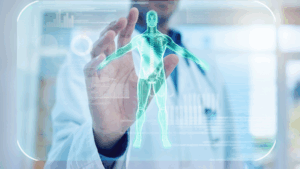As artificial intelligence (AI) continues to transform the healthcare industry, many professionals are wondering what the future holds for their careers. From diagnostic tools to administrative automation, AI is reshaping how care is delivered—but it’s not replacing the human element that makes healthcare so essential.
If you’re a physician, nurse, therapist, technologist, or allied health professional, the good news is that your skills are more relevant than ever. But to stay ahead in this fast-changing landscape, you’ll need to evolve right along with the technology.
This article offers a roadmap to AI-proof your career—not by avoiding AI, but by embracing the parts of your work that only a human can do.
Understand What AI Can—and Can’t—Do
First, let’s talk about the types of tasks AI is likely to take on. In healthcare, that includes things like:
- Processing and analyzing large data sets
- Assisting in diagnosis through image recognition (like radiology scans)
- Automating administrative tasks like scheduling or billing
- Recommending treatment plans based on historical data
But AI still struggles with:
- Empathy and emotional intelligence
- Critical thinking in ambiguous or novel situations
- Ethical decision-making
- Complex physical procedures
- Human-to-human communication
In short, AI can enhance healthcare—but it can’t replace the human touch.
Focus on Human-Centered Skills
To AI-proof your role, focus on the skills and qualities that make you uniquely human. Let’s outline a few of these key items, including:
1. Emotional Intelligence
Empathy, listening, and communication are at the heart of healthcare. Whether you’re a traveling nurse managing patient relationships across facilities or a therapist working with vulnerable populations, your emotional intelligence is irreplaceable.
A study by McKinsey highlights that the demand for social and emotional skills will grow significantly by 2030—particularly in healthcare.
2. Adaptability and Lifelong Learning
Healthcare is constantly evolving. Professionals who are open to learning new technologies, systems, and techniques will have a competitive edge. Embracing change, rather than resisting it, shows employers that you’re ready to grow with the industry.
Many providers are already offering AI-focused upskilling opportunities. For example, the American Medical Association offers resources to help physicians understand AI tools in clinical practice.
3. Ethical Judgment and Decision-Making
AI doesn’t make ethical decisions—it makes logical ones based on available data. Healthcare workers often navigate moral grey areas that require contextual understanding, compassion, and professional judgment. That’s where you come in.
Add Digital Literacy to Your Toolkit
Being “AI-proof” doesn’t mean avoiding technology—it means understanding how to work alongside it. Here’s how to build digital fluency:
- Learn the basics of AI in healthcare. What is machine learning? How are algorithms used in diagnostics or patient monitoring? Free courses from Coursera and edX can help.
- Stay current on healthcare tech trends. Subscribe to reputable journals like Health Affairs or tech news outlets like STAT News.
- Familiarize yourself with electronic health record (EHR) systems and other tools you’re likely to encounter on the job.
The goal isn’t to become a data scientist—but rather to become comfortable and confident working with AI-powered tools in your clinical or support role.
Consider Cross-Training or Upskilling
AI may change the shape of healthcare jobs, but it also creates new opportunities.
For example:
- A respiratory therapist might train in telehealth tools to support virtual care.
- A lab technician could become a specialist in managing AI-powered diagnostic machines.
- A nurse could explore clinical informatics or case management using AI-enhanced EHRs.
Organizations like HealthIT.gov and AHIMA offer certification programs and learning tracks that align with emerging healthcare technology.
Don’t Neglect the Soft Skills
According to a LinkedIn report, soft skills—like collaboration, communication, and leadership—are increasingly valued in AI-augmented environments. As automation takes on routine tasks, the human side of healthcare becomes even more important.
If you’re managing a team, supporting patients through emotional journeys, or communicating with diverse populations, those are skills AI can’t replicate—and employers know it.
Lean Into Flexibility and Mobility
One of the greatest advantages healthcare professionals have is career mobility. With licensure and certification, you can often take your skills across state lines or into new settings—especially in locum tenens, travel nursing, or allied health roles.
AI may change where and how care is delivered (e.g., through remote monitoring or telehealth), but flexible healthcare professionals will remain in high demand.
If you’re considering a new assignment, a shift in setting, or even a change in specialty, now’s a great time to explore options that align with both your personal values and the future of the field.
Final Thoughts: AI Is a Tool—Not a Threat
Rather than viewing AI as a competitor, think of it as a partner that can help you do your job better. It can reduce paperwork, improve diagnostics, and streamline workflows—freeing you up to focus on what really matters: caring for people.
By staying curious, honing your human skills, and embracing change, you can AI-proof your career and thrive in the future of healthcare.
Let’s Navigate the Future Together
At All Medical Personnel, we’re more than a staffing firm—we’re your partner on the journey ahead. Whether you’re looking for your next assignment or seeking career advice in an evolving industry, our team is here to help. Get in touch or Explore healthcare jobs with All Medical Personnel!





